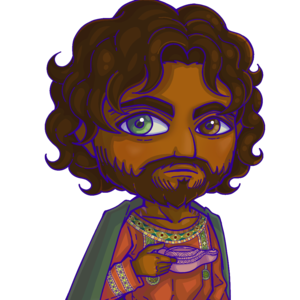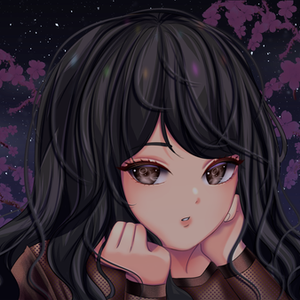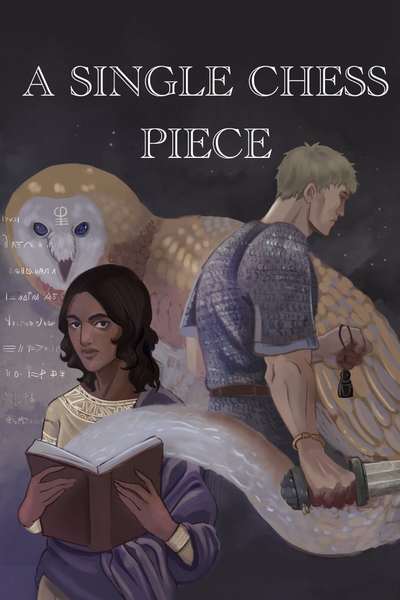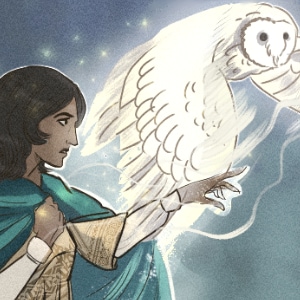The sun was just setting when Sophia, her three daughters, and Rhode arrived safely at the double gate of the acropolis, accompanied by two armed eunuch servants, John, and Porphyry. It was something close to a miracle that despite the dire state of his coffers, Michael Dokeianos, managed to arrange for his wife, his daughters, and his niece, to hide in the citadel once the attack started, along with the families of the most important officials. As a ranked officer, he himself was taking part in the defense. But he was relieved that at least his closest family would have a safe place to sit and wait for the reinforcements from Constantinople.
Upon reaching the citadel however, Sophia noticed that there were less guards then she hoped for. Clearly the gossip about soldiers deserting must have been true. She was even more dismayed to learn another thing – the aqueduct which brought water into that section of the city, had collapsed. This meant that people only had what they brought themselves. She sent the servants to fetch another two barrels to keep in their room for rations. The acropolis seemed less and less the safe haven it was supposed to be. She did not mention it to her daughters however.
When they arrived at the citadel, they were received by a serving woman. She showed them to the east wing, where the servants’ quarters were located. Sophia’s family was not important enough to get the better quarters on the upper levels of the citadel. Instead, they had to make do with a large room and changing room that had belonged to the family of one of the palace servants. The room contained five beds, a large wooden tub, a heavy table to eat on, four chairs, and a small chest for belongings. A small, wooden cross hung from above the door. There was nothing else.
As Porphyry and John carried in the luggage, the women hesitantly sat themselves on the narrow beds. Martina, the eldest of Sophia’s daughters, was the picture of calmness. In that way, she was a lot like her mother. She took of her veil and began brushing her hair, with her face completely unreadable. The twins, Sibyl and Kale, three years younger than Martina, were much more expressive. Both girls tapped their feet nervously and kept looking around. They both looked grim but determined. Sophia knew they each had a small dagger hidden between the voluminous folds of their tunics. Rhode, who was their cousin on their father’s side, looked lost and bewildered. She kept looking around nervously and jumped at every little sound. When Kale opened the window loudly behind her, she jumped up in a panic. She then hid her face in her hands and refused to talk to anyone, even Martina.
Sophia sighed, looking at her niece. She had always felt that her husband’s brother did not do a good job raising his daughter. Rhode was awkward and withdrawn. When the girl had first moved in with them, at the age of 14, Sophia tried to remedy this and gave her long lectures on lady-like behavior which included acting with dignity and pride. She enthusiastically listed numerous examples, from fact and prose, of women with high achievements. Such women were stately, brave, modest, beautiful and wise. They were polite but confident, and they did not falter in the face of adversity. She enthusiastically recounted stories of well-educated ladies who defended the faith with their knowledge and erudition. Of noble women who dedicated themselves to charitable work without hesitance. Of elegant and beautiful wives of emperors, who stood by them in moments of danger without a trace of fear. Of grand matrons who could command respect with just a few, well-chosen words. The results of all these moralizing stories, however, were far from satisfactory. In fact, over the next few years living with Sophia and Michael, Rhode only became more and more nervous and jumpy, which frustrated the older woman to no end.
A thing Sophia found particularly irritating was that Rhode always avoided people’s eyes when she spoke to them. Roman etiquette recommended that respectable ladies ought not look others in the eyes, especially men, as the gaze could lead to temptation. So Rhode's behavior might have been interpreted as politeness. But Sophia knew otherwise. It was not good manners and humility that made Rhode avert her gaze. It was something else. Timidity. Sophia did not like timidity.
Having quite enough of the gloomy atmosphere, Sophia got up from her bed energetically.
“Enough of this mournful mood ladies! The city has not fallen yet! For now, let’s unpack. After that we will look through our rations to make sure we have everything for a long siege. Being idle will surely only make us all feel worse!” she smiled encouragingly and began unpacking.
“Kale, Sybil, put those clothes up nicely, no one will have time to clean after you during a siege. Rhode! Stop slouching, you know it gets on my nerves!”
*
For the next few days, Sophia, a true Roman matron, was coming up with various tasks for all of them. She felt that remaining active would help them deal with the stress and fear. She had her daughters explore the citadel to make sure they knew its layout well. Knowledge of the passageways and tunnels could be very useful, should they need to evacuate the place on their own. She also hung up curtains in their two rooms in such a way that John and Porphyry’s section of the room was divided off from the women’s. This she did herself. She did not feel depending on the men to do everything led to anything good. Originally the two servants were to sleep in the corridor outside their door, but Sophia felt that it would be safer to have them living with them. Besides, it might enforce their sense of loyalty, should the worst come to pass and the two men would have to choose between staying to protect them and running to save their own skin.
She also kept tight control on how much they all ate and drank, in order not to waste their rations. Every day she sent John and Porphyry to search for additional provisions. Food, water, wine. Whatever they could find, that could be useful during a siege. She ran them all to church every day, because prayer wouldn’t hurt, and who knows, maybe it would help. She also spent some time bribing the soldiers who were supposed to guard the citadel to pay extra attention to the section where their quarters were located. She had taken both money and some precious objects for the bribes. And she knew how to give them in just the right way.
From time to time she also took walks on the ramparts. This was the only opportunity for her to meet Michael, her husband, who, as an officer, was spending the days and nights on the walls or in the barracks. Sometimes she went alone. Other times her daughters, or Rhode, went with her. These visits were usually unpleasant. From the walls they could clearly see the fires from the enemy camp, and the damage the walls have already sustained. They could also see the looted, smoking suburbs of the city. It scared them. Until now, in the citadel, the siege had felt abstract and far away. Here on the ramparts, the danger in became much more imminent and conspicuous. Rhode only went once. After that first visit, she refused to go on the wall ever again.
Sophia’s energetic attitude and organizational skills kept their spirits relatively up for a time. Until, that is, when the ships arrived. It was about a week after the Norman army first appeared at the city’s walls. Now the harbor too was blocked, by numerous Norman and pirate vessels. With their appearance, the city’s fate seemed to be sealed. Sophia ordered her daughters, and Rhode, not to leave the acropolis again. As the stones from the siege weapons fell on their city, now from land as well as sea, all they could do was wait. And hope.
__________________
People, Places and Things
These are the historical notes to chapters 2 & 3
People:
David Komnenos: relative of the Emperor Andronikos Komnenos and governor of Thessaloniki. Said to be in conflict with the Emperor. Member of the illustrious Kommnenoi family who ruled the Empire for a century.
Normans - a peoples from Normandy, northern France. In the 10th and 11th centuries the Normans launched numerous invasions, most notably of the Kingdom of England (Prince William) and the Kingdom of Sicily. They were in bitter war with the Byzantine Empire, though many also served it as mercenaries.
Places:
Byzantine Empire: otherwise known as the "Eastern Roman Empire" – the remnant of the Roman Empire, nominally Christian since the reign of Constantine the Great in the 4th century AD.
Constantinople: the capital of the Empire. Described by numerous travelers as the most impressive city in the world. One of the largest cities of the medieval world.
Thessalonike: One of the largest of the Empire’s city, located in what is today Greece.
Acropolis: the upper city – it’s usually in the most elevated side of the city, usually the location of the citadel and the most expensive palaces of the upper class. In the Byzantine times it was usually divided off from the rest of the city by an additional wall.
Things:
Zatrikon: “Roman Chess” – played on a round chessboard. The rules are similar to regular chess. Chess, as well as other board games were often seen as ‘gambling’ in the Byzantine world and thus discouraged. On the other hand zatrikon and backgammon, were seen as a very aristocratic game that requires a good mind.
Veil : Roman society was quite restrictive of women, though it was still better than ancient Greek or Germanic. Women, especially upper class women, tended to cover their hair for the sake of modesty. Though this was not enforced in any legal way, women who did not cover their hair when outdoors where often thought to be of 'loose morals'. Other types of hair-coverings for women were caps, hoods or turbans. The veils could be of different kinds, thick or see-through. Decorated or plain. Big or just barely covering the hair. The face was left uncovered.












Comments (14)
See all